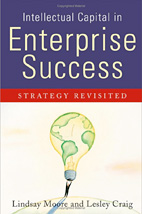Many of our largest companies are often reported as “having more cash than the U.S. Treasury.” These words are spoken in a marveling and laudable voice, and most readers stand in awe that businesses could accumulate so very much cash. As of July 13, 2011, 29 companies had more cash than the U.S. Treasury.
Ethical-Regulatory Compliance
Recent ethical, regulatory, and legal responses to enterprise wrong-doing is driving a sea change throughout organizations in the United States. There are many new regulatory guidelines in place, evidencing the imperative to drive ethical behavior and establish integrity across both public and private organizations.
The Importance of Duty Of Care (PDF)
Exaggerated marketing, false and overblown label claims, adulterated and misbranded products all violate the law, mislead or deceive consumers, and evidence a failure by manufacturers to fulfill the duty of care due consumers.
The Ethics of Intellectual Asset Management (PDF)
The shift from the familiar corporate asset base centered upon traditional physical and financial asset to an asset base centered upon intangible intellectual assets brings with it subtle new ethical challenges and problems.



 As the knowledge-based economy expands, the companies and individuals that possess intangible intellectual assets, such as intellectual property, will need specialized expertise, strategic thinking, legal experience, and the wisdom necessary to manage intellectual assets.
As the knowledge-based economy expands, the companies and individuals that possess intangible intellectual assets, such as intellectual property, will need specialized expertise, strategic thinking, legal experience, and the wisdom necessary to manage intellectual assets.